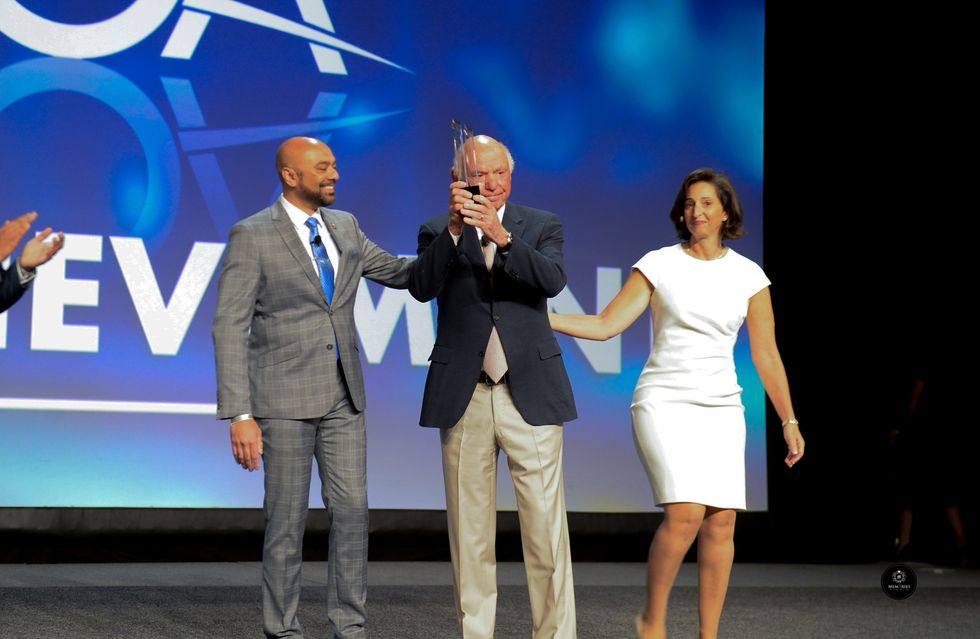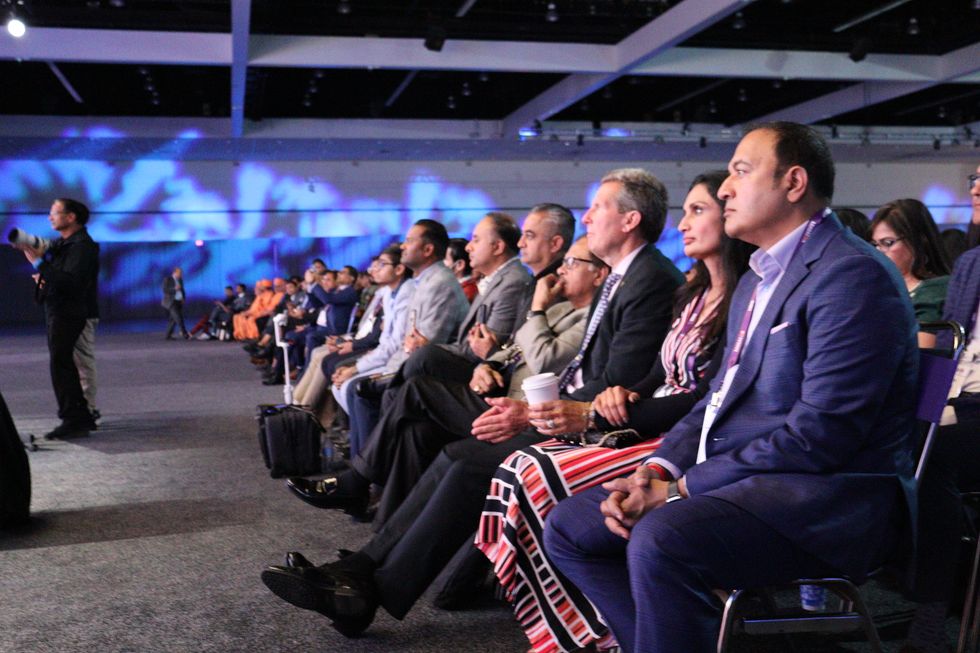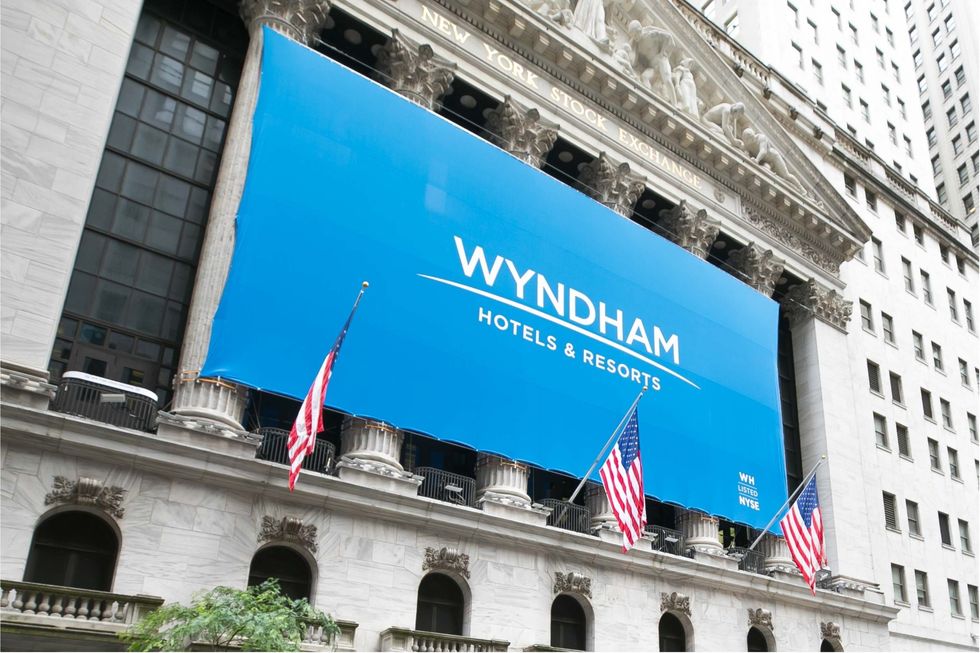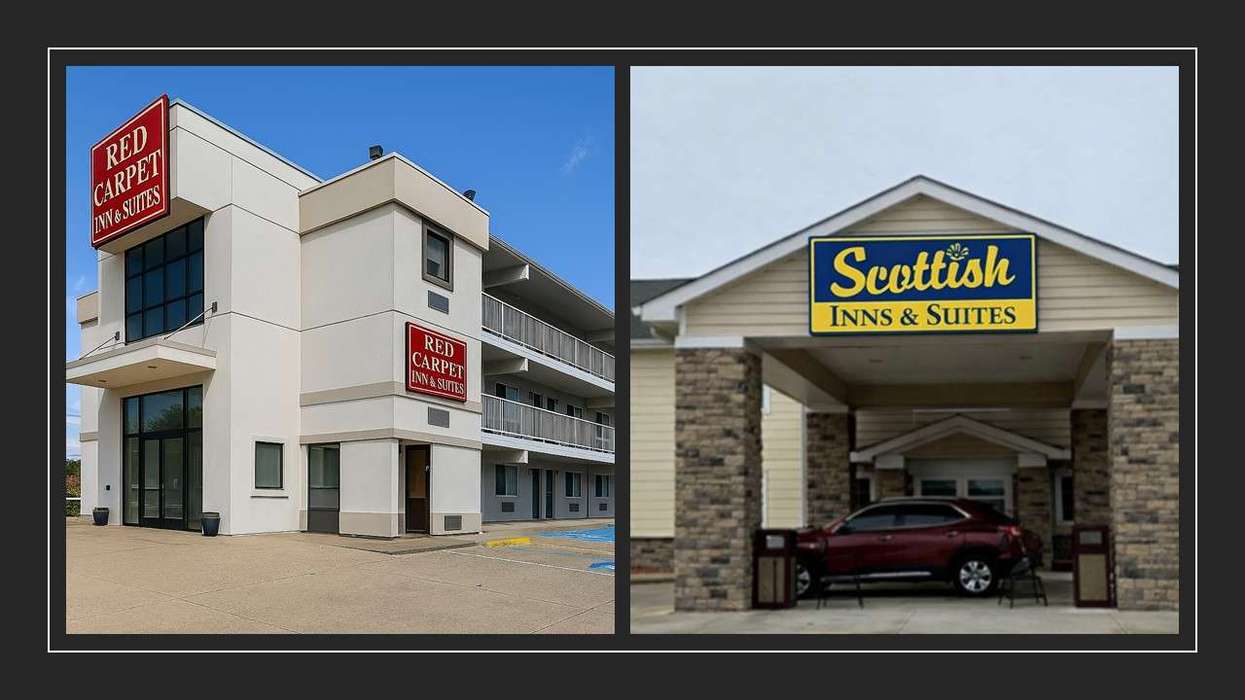Amid the turmoil of the 2023 AAHOA Convention & Trade Show in April, Geoff Ballotti, president and CEO of Wyndham Hotels & Resorts, fit right in. He took time out of that busy schedule to sit down with Asian Hospitality for a chat in our Leadership Series.
The main topic of conversation was AAHOACON23 itself. Namely, the fact that several large hotel companies chose not to attend the conference this year due to their disagreement with AAHOA’s support for franchise reform. Ballotti also talked about his history with the association that led to his decision to attend.
“It's a very personal story, not just for me, but for the company,” Ballotti said. “Wyndham has been sponsoring AAHOA for 35 consecutive AAHOACONs. I haven't been able to make all of them. But I began going in 1994 and I have been here since I've been back in the United States of America.”
Beginning at the beginning
Ballotti said he had just been discussing the history of AAHOA’s conferences during the Hunter Hotel Conference in March.
“We had the opportunity to talk about how back in 1989 Wyndham’s chairman Stephen P. Holmes and the CEO at the time, Henry Silverman, were able to hire this bright young executive from Boston, Massachusetts by the name of Mike Leven,” Ballotti said. “He convinced Steve, my chairman of Wyndham hotels and resorts, to write a $100,000 check to found AAHOA.”
That year the first AAHOACON was held in Atlanta with 225 attendees. Ballotti’s first AAHOACON was in 1994 in Nashville with 4,200.

“To me that was the largest convention I had ever attended,” he said. “To think today that we have over 7,000 attendees just shows you the power of AAHOA.”
Today, Ballotti said 60 percent of the nation's motels and hotels are owned by AAHOA members. He said upwards of two thirds of Wyndham’s owners are AAHOA members.
“They're here, you can feel it in this booth. These are very successful entrepreneurs, very important small business owners of ours, that's why we're here,” Ballotti said. “We're here for our ownership base. We're here to talk to them about what we can do to support them.”
‘We support being here’
There were several notable absences at this year’s AAHOACON. In January, Marriott International announced it would withdraw its support for AAHOA and the conference in response to the association’s 12 Points of Fair Franchising and its support for New Jersey Assembly Bill 1958, which would make changes to the state’s Franchise Practices Act that could benefit franchisees.
Choice Hotels International followed suit in February. Along with those two companies, however, several others that ordinarily attend AAHOACONs did not have booths at the show, including IHG Hotels & Resorts and Hilton. Other companies, including G6 Hospitality, BWH Hotel Group and Red Roof, have publicly endorsed the 12 Points.
Ballotti explained why he decided to come.
“It's great when you have an industry that’s united and when you have the American Hotel and Lodging Association and AAHOA advocating on the same sides of legal issues,” he said. “Wyndham does not support [New Jersey Assembly Bill 1958] but we do support our owners, we support AAHOA, we support being here. It is something that it would be great, to see us all together on legislative issues, but hopefully we'll find a way through this so that we are on the same side of that issue.”

Assembly Bill 1958 recently passed the state’s Assembly and currently is being reviewed by a committee in the state’s Senate. Ballotti said the way the New Jersey bill is currently written contains elements Wyndham cannot support.
“There's been a lot of amendments to the bill. And even the way the bill is written now would really handcuff the brands in terms of what our owners are looking for, in terms of what makes a great brand,” Ballotti said. “Our brand standards, what makes a brand great is consistency, is quality, all the things that brands are passionate about. Those are the issues that we need to all agree on.”
Optimism despite it all
Despite lingering concerns by some economists about the potential for an economic slowdown in 2023, Ballotti remains upbeat.
“I have never been more optimistic. In my career, in terms of the demand that is still out there in this economy, obviously people are worried about interest rates and financing,” he said. “Most developers are looking at that as transitory in the long term. There are so many fundamentally good things happening right now in this industry.”
Ballotti cited a presentation given by Adam Sacks, president of Tourism Economics, at the Hunter conference. Sacks said the lodging industry will defy economic gravity.

“Despite what's going on economically, with that thesis, demand is in a position that is really never changed our business,” Ballotti said. “It's pretty incredible to think that 2021 for our small business owners was better than 2019.”
Wyndham’s future is bright, the company’s leader said.
“We opened 462 hotels last year, but we signed, we executed contracts at a rate of three contracts awarded each and every day. It was a record year for us. Our pipeline is at an all-time high,” Ballotti said. “When we look at the $1.2 trillion in spending [in the Bipartisan Infrastructure Deal passed in 2021], where the workers who are going to be building our roads, our bridges, our highways are going to be staying is not in luxury hotels. They are going to be staying in select service, standard stay accommodations suites by Wyndham. So yeah, we're really very excited about that.”






